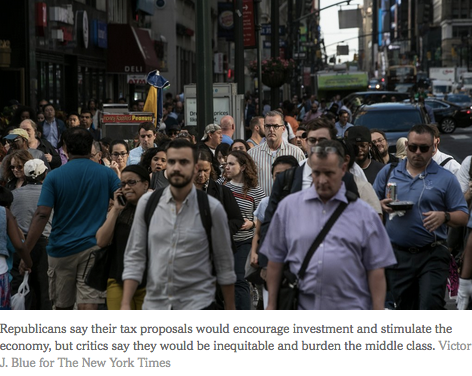Wagner’s Law, named for the 19th-century German economist Adolph Wagner, states that government spending as a share of the economy will increase as nations get richer and their citizens demand more and better public services. This may approximate public policy in other industrialized nations. In the United States, it fails.
Americans are paying dearly as a result, as their comparatively small government has proved incapable of providing an adequate safety net to protect those most vulnerable to globalization and technological change.
It is hard to understand the deep reasons behind the American aversion to taxes and government. Is it the vestigial expression of a rugged individualism born on the American frontier? Is it racial hostility — an unwillingness by whites to fund social programs that some believe unduly benefit minorities?
And whatever apologists for small government might argue, there is no credible evidence that countries with higher tax rates necessarily grow less.
Over the last couple of weeks, Republicans have offered legislation to cut taxes by $1.5 trillion over the next decade — more than half a percentage point of G.D.P. They assert a dire need to stimulate growth by encouraging corporations to invest in the United States.




